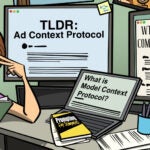Landing-page specialist Unbounce is buying attribution and analytics software provider LeadsRx in a bid to help its SMB clients increase the quality and volume of their conversions.
Terms of the deal, announced on Wednesday, were not disclosed, but Unbounce is a much larger company. Unbounce has more than 250 employees, while LeadsRx has a headcount of 21.
For the time being, LeadsRx, whose 5,000 mainly midsize and enterprise customers include iHeartMedia, Casper and Rakuten, will continue to operate as an independent entity. The company’s CEO and founder, AJ Brown, will stay on as CEO, reporting to Unbounce’s chief executive, Felicia Bochicchio.
The rationale behind the deal is to give small and midsized marketers the ability to figure out which channel or combination of channels have the best chance of leading to a conversion.
Unbounce, which has roughly 100,000 SMB customers, offers a suite of landing-page optimization tools to help with layout, design and copy, along with an AI-powered tool that gives marketers a sense of who is likely to visit their landing pages – but it doesn’t yet offer attribution capabilities.
And “that’s a big part of what interested us in this deal,” said Tamara Grominsky, chief strategy officer at Unbounce, “as well as the idea of quality versus quantity” of conversions.
The aim of most landing page technology is to generate as many conversions as possible – which is fine. “But every conversion is not equal,” said Grominsky. “We want to go beyond that to get more of your best customers.”
The LeadsRx technology relies on a homegrown universal tracking pixel akin to what Google, Facebook and other ad servers offer to place on a website for advertisers to collect information. What makes the LeadsRx pixel a little different is that it picks up all of the inbound traffic to a website and places it into a separate, isolated identity graph.
“We don’t share any cross-domain data, which means privacy is preserved,” said Brown.
One of the most common use cases for attribution is return on ad spend (ROAS) analysis, said Brown. By dividing revenue by the cost of advertising, the marketer can get a sense of which channels are actually producing value and where to cut media waste.
But most SMBs don’t have the bandwidth, skillset or budget to do that sort of analysis.
“SMBs are hungry for this stuff in a self-serve way, but it’s a huge pain point because they don’t have the attribution capabilities,” said Brown.
Bringing LeadsRx into the fold will democratize access and make it easy to do something with the data, said Grominsky.
“It should be as accessible as possible to take the insights from marketing attribution to inform the conversion path,” she said.
But why go the acquisition route rather than continue to partner, which Unbounce and LeadsRx have done for the past several years?
The pandemic was an eye-opener, said Brown.
“When budgets get cut, analytics is typically one of the first things to go, but that didn’t happen during the pandemic – people doubled down on their usage, because all of our gut instincts were challenged,” said Brown. “And we realized that we needed to be part of something bigger so that we can help marketers use analytics even more pervasively.”
Unbounce and LeadsRx will take the next three months or so to figure out a plan for eventually more deeply integrating their solutions and data. For the time being, though, both companies will continue to serve their existing respective customer bases and pipelines.













